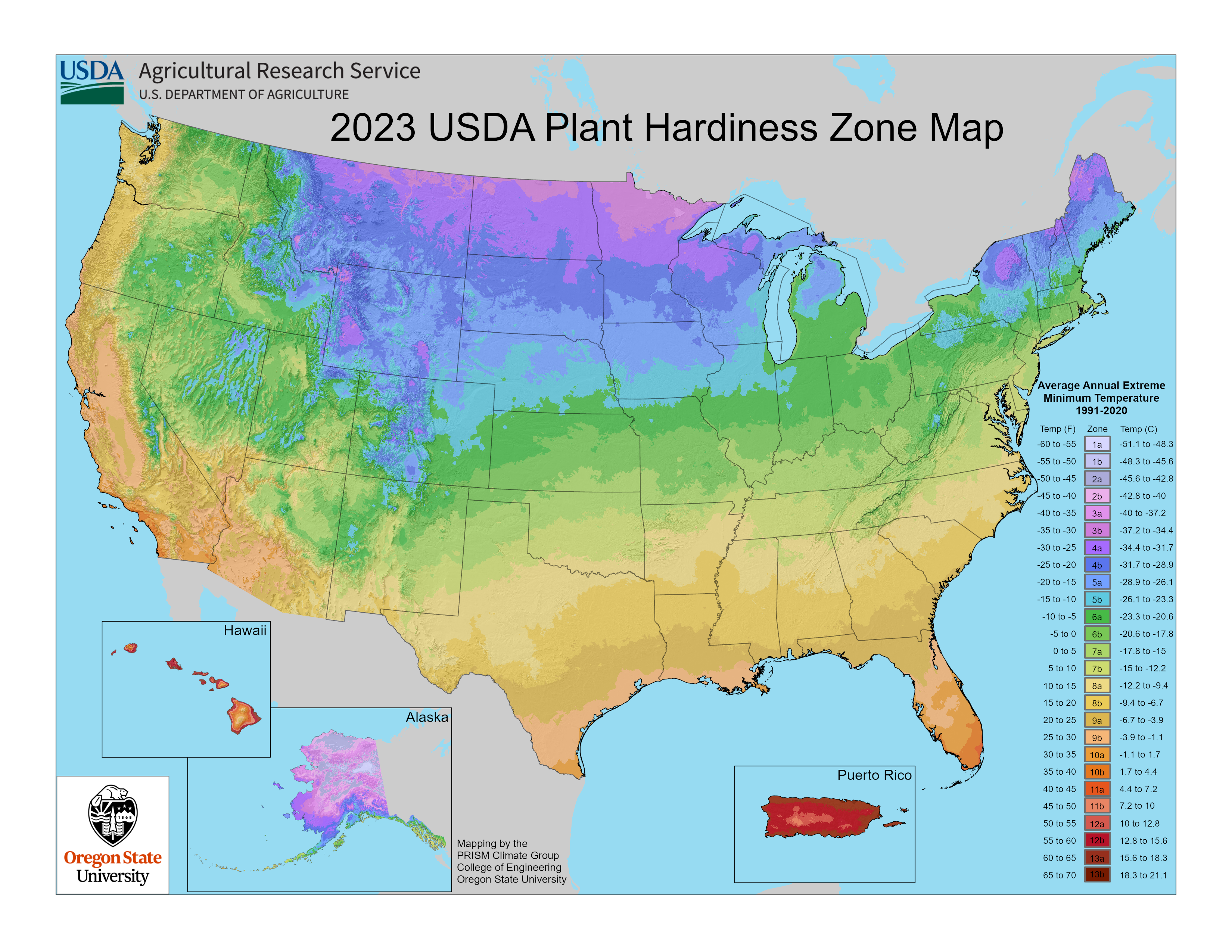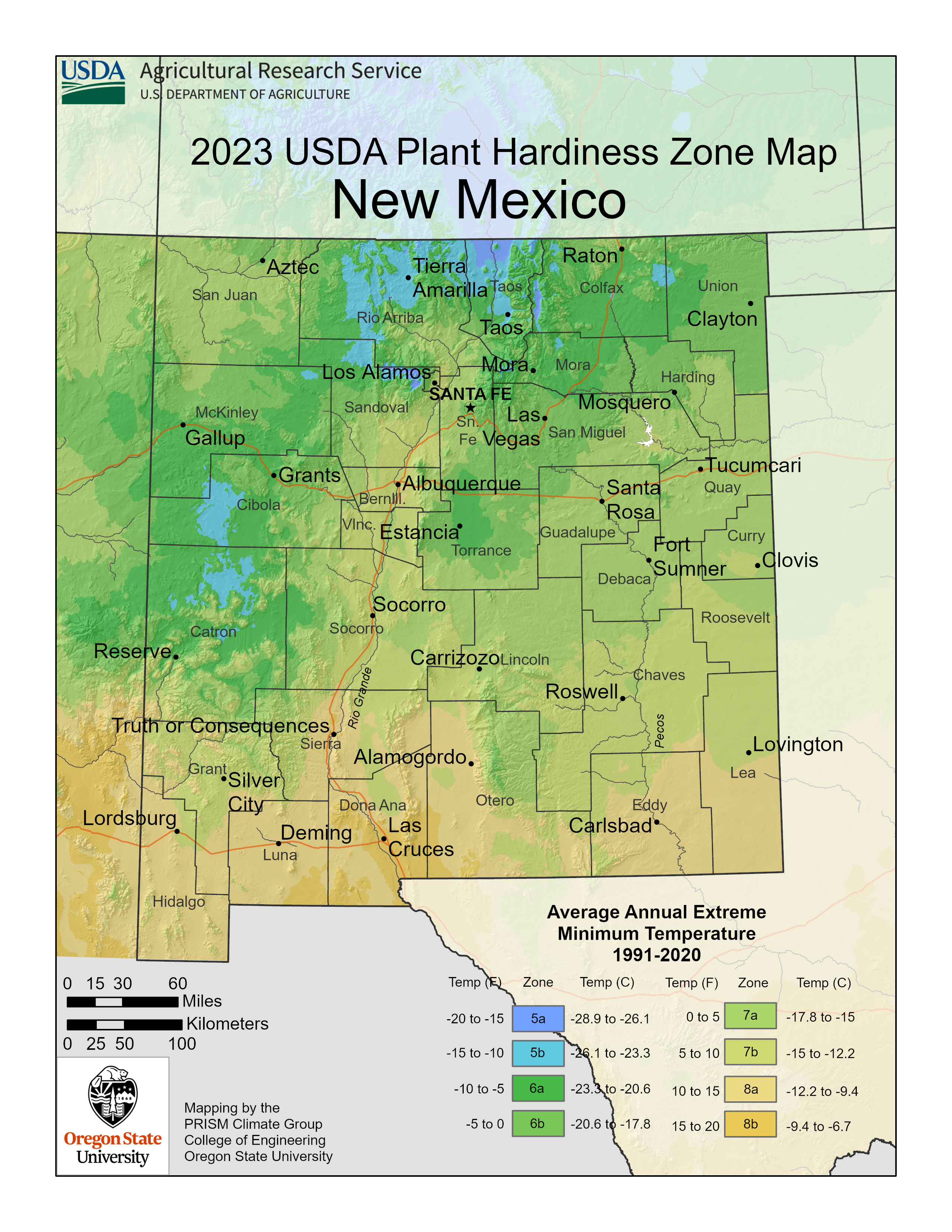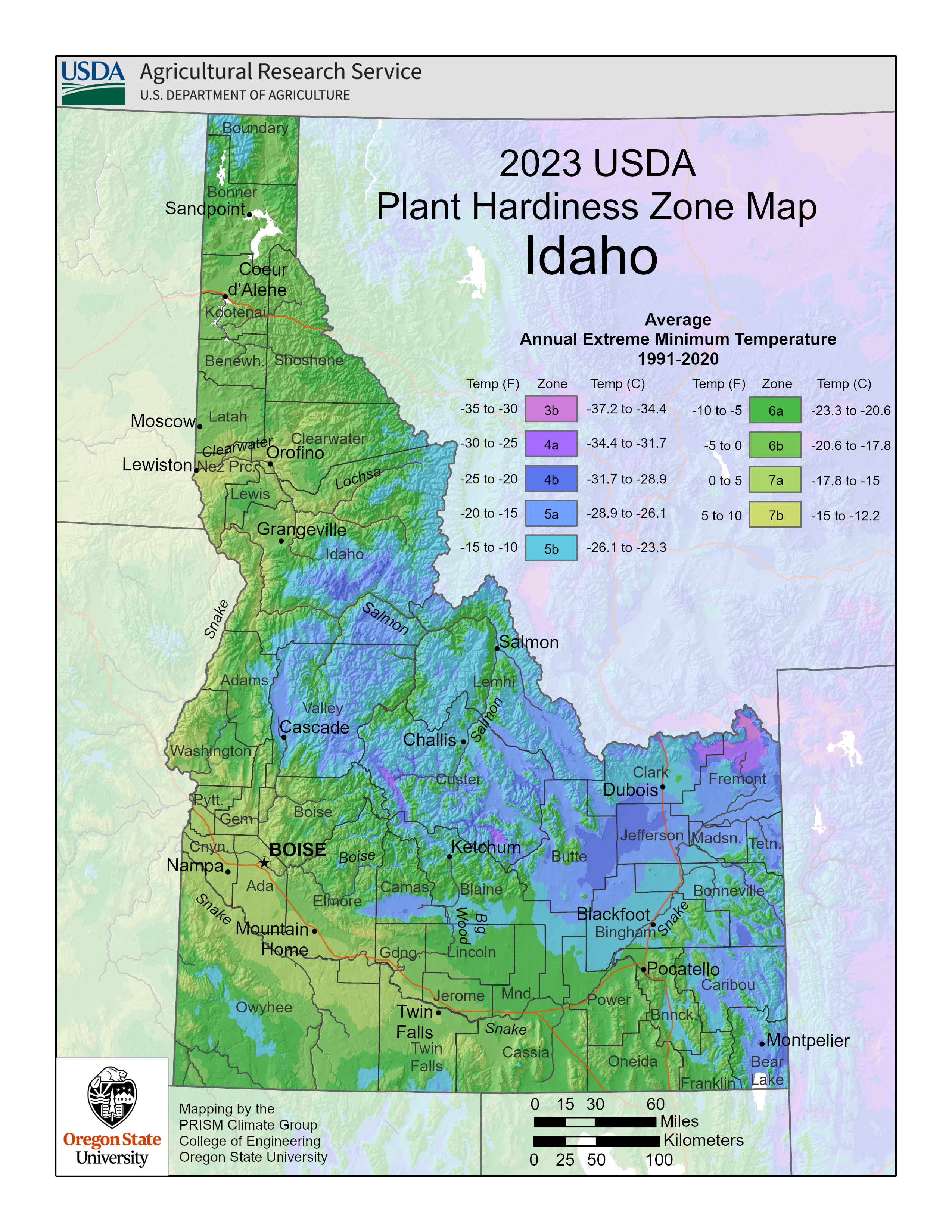Most of the fertilizers in the market contain three main chemical elements (Nitrogen, Phosphorus, and Potassium) that are vital for the growth of plants.
That is why a fertilizer package has an NPK label mostly on its front side.
Essentially, NPK represents the amount of Nitrogen, Phosphorus, and Potassium chemical elements in the fertilizer.
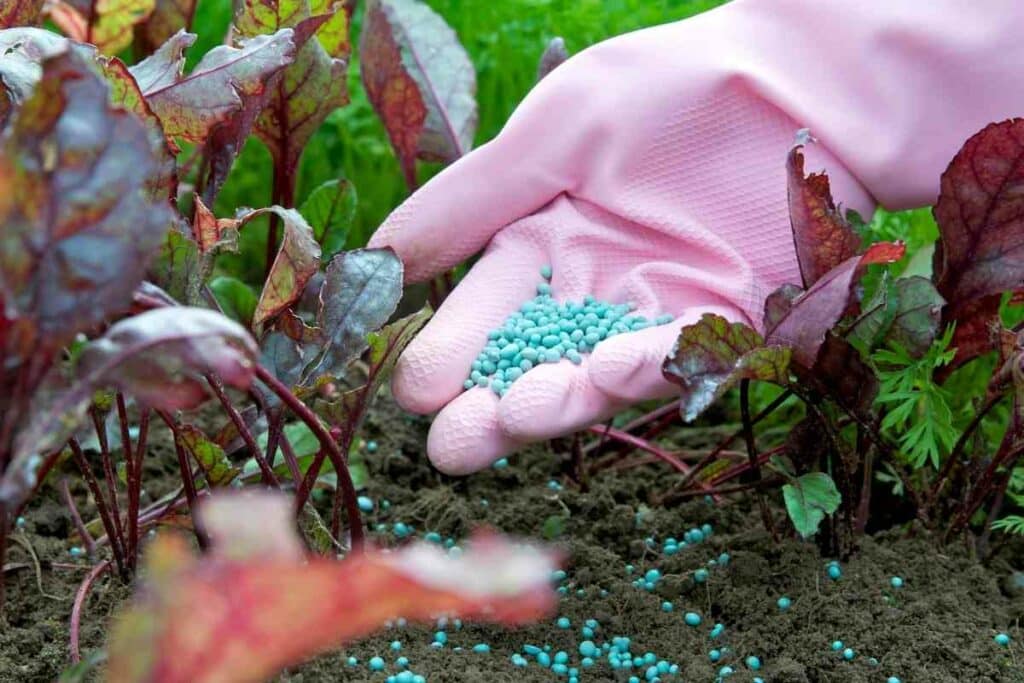
The amount of each compound is different and should be applied based on what your soil is lacking, the type of plant, or the season.
Winter fertilizers (winterizers) usually have high Nitrogen and Potassium quantities. In particular, N to K ratio should be 2:1.
For Instance – The NPK ratio on the label can be 24:2:12. Notice that the phosphorous level should be minimal since it is not needed during winter.
Winter Fertilizer Numbers
Nitrogen and Potassium are probably what your garden or lawn requires during winter.
This is because excess phosphorous in the soil encourages the growth of micro plants such as algae, which you do not need in your garden.
Also, in most cases, your soil has a lot of phosphorus at the onset of winter.
During the onset of winter, your best option is to go for a slow-release fertilizer with an NPK ratio of 10:2:20 NPK.
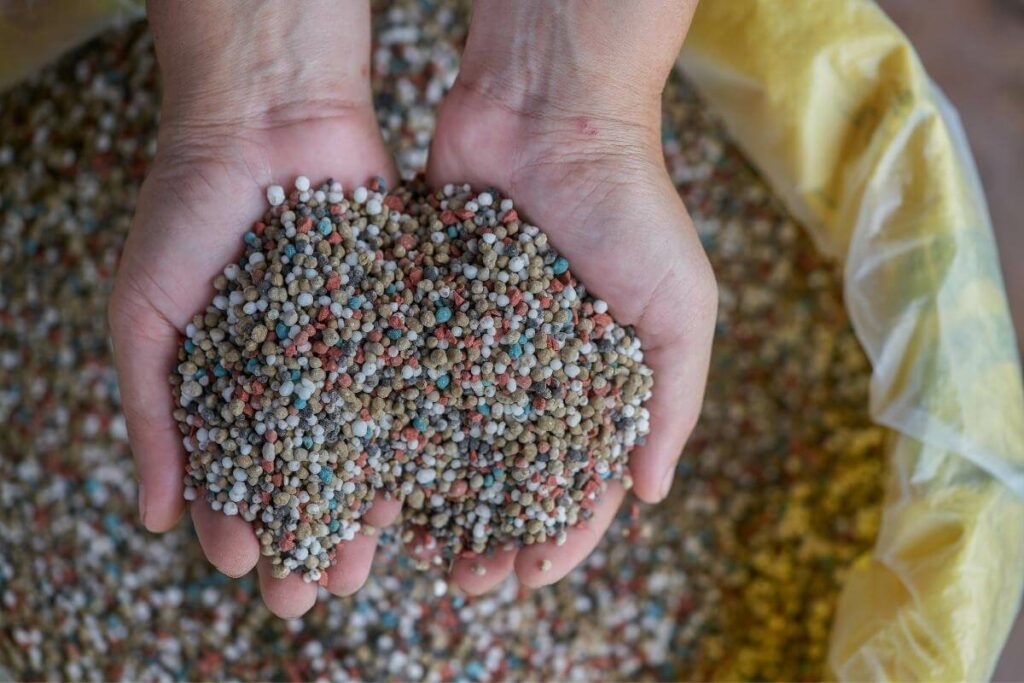
In this case, the amount of Nitrogen is low since you do not want your lawn to overgrow during winter.
Nitrogen encourages the development of leaves, which is not ideal during winter as this makes your plants more prone to diseases and frost attacks.
During Winter – You do not want your stems and leaves to grow since plants need to conserve as much energy as possible.
In order to be able to survive winter, your plants require a well-developed root system.
As such, a high amount of Potassium is essential not only for encouraging root growth but also for making your plants more tolerant to stresses (e.g., the harsh winter weather).
Therefore, the amount of Potassium you apply during winter should be more than that used in spring.
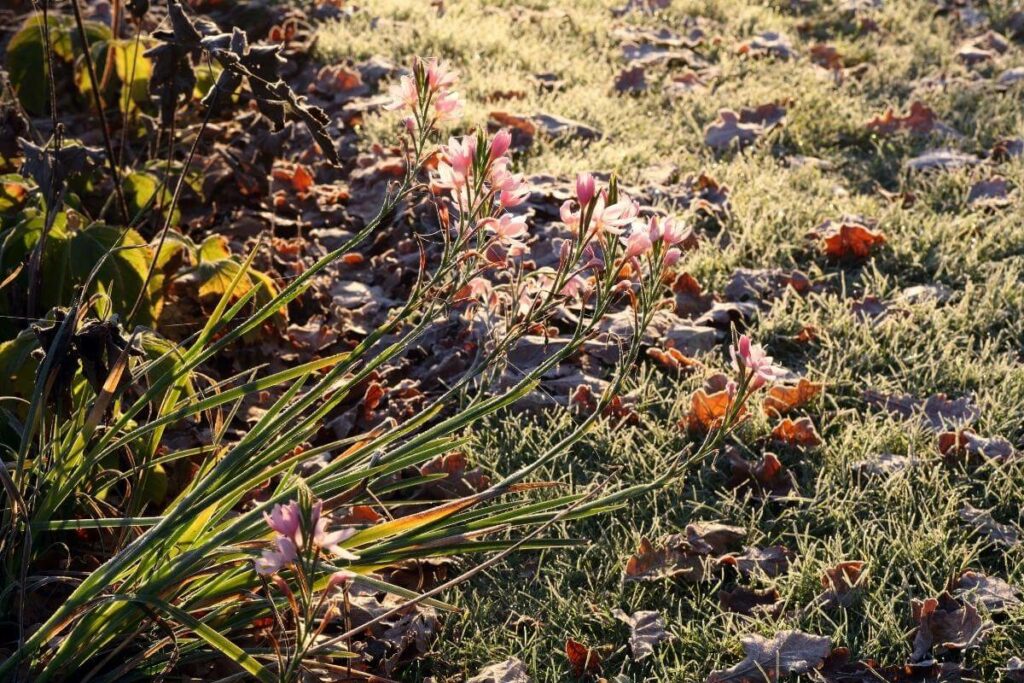
Understanding the NPK ratio of your winter fertilizer before feeding your garden or lawn is essential.
Provide your plants with sufficient nutrients to help them cope through winter. Note that different fertilizer manufacturers produce it in varying ratios.
For instance, manufacturers A and B may produce fertilizers with NPK ratios of 24:2:12 and 28:2:8. You must decide what is appropriate for your usage.
When To Apply Winter Fertilizer
Understanding the importance of different fertilizers allows you to plan and manage the lawn or garden effectively.
For instance, a winter fertilizer feeds your plants with the proper nutrients to help them survive winter.
However, in contrast to the name of the fertilizer, a winterizer should be applied during late fall.
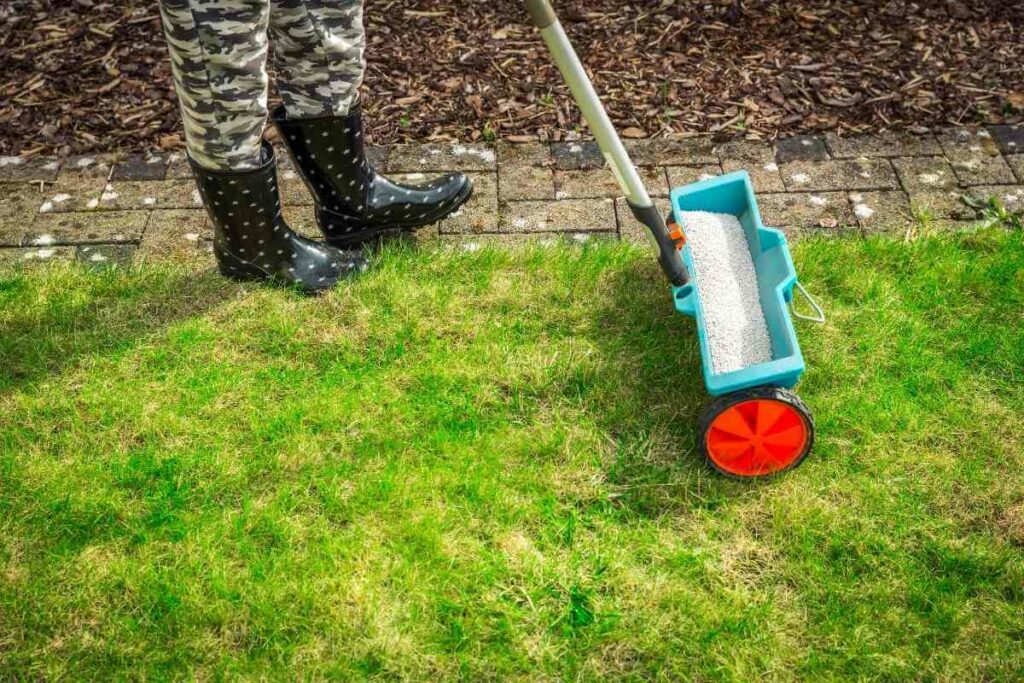
The fertilizer should be applied when the lawn slows its growth due to the cold weather.
However, in most cases, this timeline is usually very short and some gardeners fail to identify it.
As a Rule of Thumb – Ensure you apply the fertilizer while the leaves are still green and the roots are strong enough. This way, the plants will be able to absorb the nutrients from the fertilizer.
If applied later, the grass may not be able to absorb the contents of the fertilizer actively. This is because the weak roots may become dormant and fail to absorb the nutrients.
A late-season fertilizer boost is vital for the overall health of your lawn and garden. It will help your plants overcome the harsh climate during winter.
However, not everyone needs winter fertilizers. This is because people across the USA experience varying winter climates.
For instance, those living up north where the season gets extreme should always apply the right fertilizer.
Why Are Winter Fertilizers Essential?
Winter fertilizers are developed to help plants survive optimally during the winter season.
Therefore, it is vital to apply winterizers to cool-season plants.
It’s not necessary to apply warm-season plants with winter fertilizers.
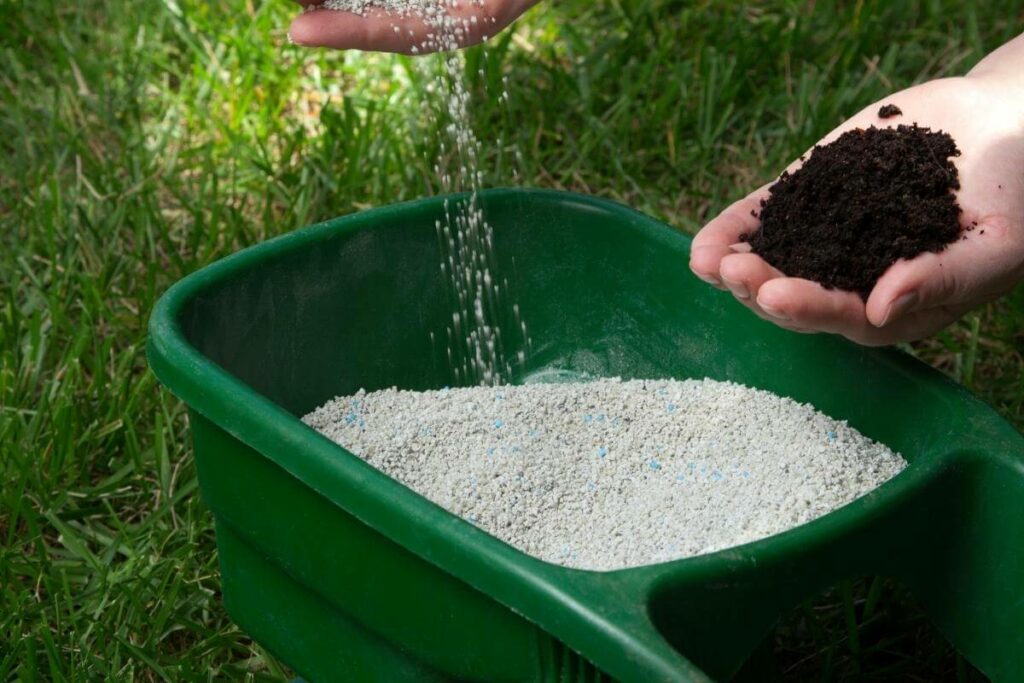
These plants often grown in the country’s southern parts do not go dormant. The weather is not very cold, and mostly the plants manage to sustain throughout winter.
Also, if your lawn has warm-season grass, it may go dormant during the onset of winter, but the plants have enough food to survive the cold period.
You may require to boost the soil with a winterizer if you need a healthy sprout during spring. However, in most cases, it won’t be necessary.
In Any Case – Testing your soil during fall will give you an idea of the health of your yard. If the soil has good levels of Potassium, then it is not necessary to apply a winter fertilizer.
If the potassium levels are too low, boost your plants with an NPK fertilizer with a high amount of K.
Vital Tips For Using Winterizers
As with other lawn/garden care practices, it is vital to consider factors mainly relating to the product, period, and soil.
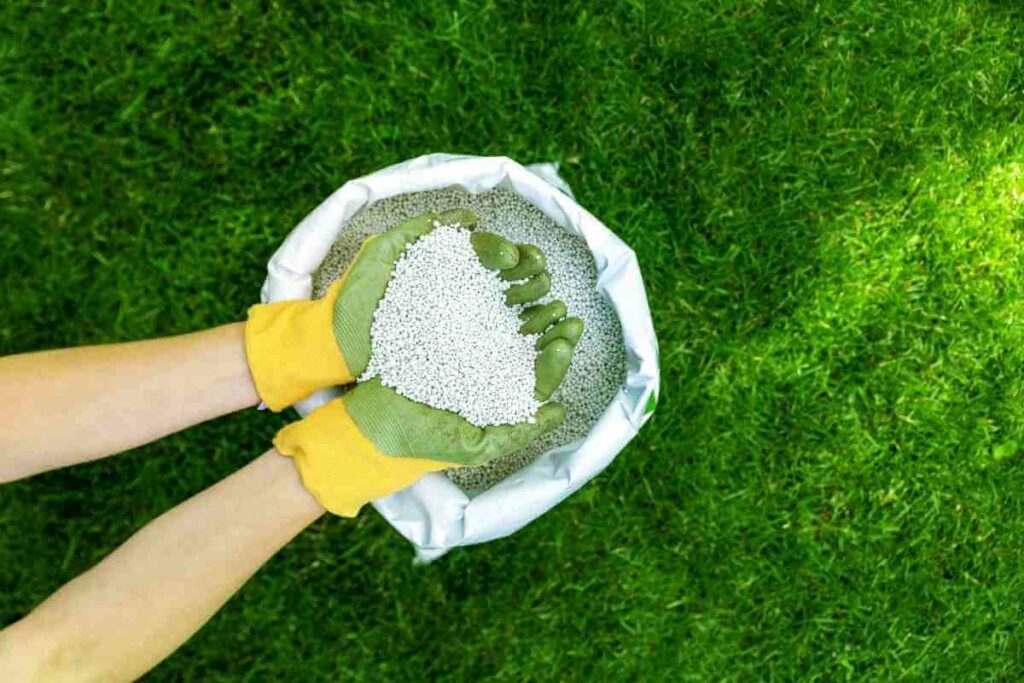
The following considerations should help you when planning and applying a winter fertilizer.
- Firstly, conduct a soil test. The test will determine the level of Potassium in your lawn. Consider taking soil samples from different parts of your yard to experts for professional lab analysis.
- Although Nitrogen and phosphorus are equally crucial for your garden or lawn, Potassium more vital. Therefore, consider a fertilizer with a formula ratio of 12:2:6 (NPK). The formulas can change but ensure to choose the same ratio.
- Apply the fertilizer in late fall. Thus, apply the winterizer in November. The fertilizer may be ineffective during December due to the harsh environment.
- Apply the recommended amounts as directed by the package. You can even apply a little less to save on money. Importantly, do not over-fertilize.
Final Thoughts
Applying a winterizer to your garden or lawn is essential during winter.
The fertilizer will help the plants survive throughout the cold season. However, some regions, especially the southern parts, do not require winter fertilizers.
Before applying, ensure that you understand the winter fertilizer numbers.
Since the plants are mostly dormant throughout the season, they require less nitrogen and phosphorus compounds.
Instead, you should go for a fertilizer with a high quantity of Potassium to help promote root development.
Remember to apply the winterizers when the ground has not frozen. Also, apply it while the plants are still active.
